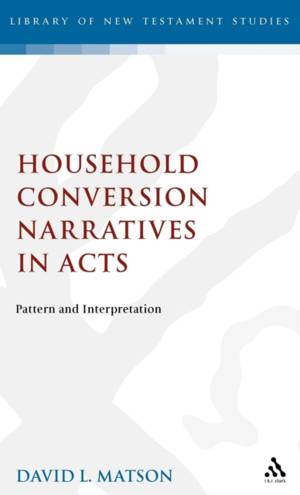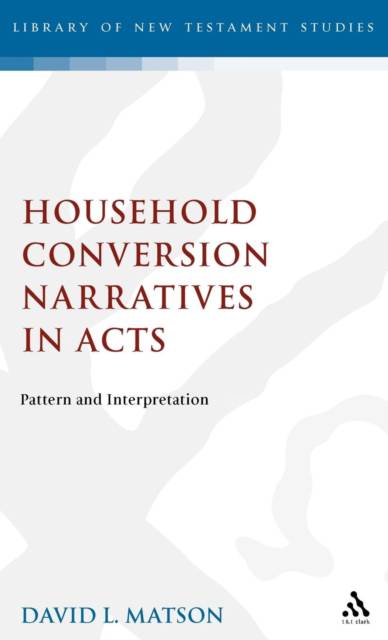
- Retrait gratuit dans votre magasin Club
- 7.000.000 titres dans notre catalogue
- Payer en toute sécurité
- Toujours un magasin près de chez vous
- Retrait gratuit dans votre magasin Club
- 7.000.0000 titres dans notre catalogue
- Payer en toute sécurité
- Toujours un magasin près de chez vous
Description
Using features of the narrative-critical method, this book offers an innovative approach to a notable phenomenon in the book of Acts: the conversion of entire households to the Christian faith. When viewed against the household mission of the seventy(-two) messengers in Luke, the stories of Cornelius, Lydia, the Roman jailer and Crispus comprise a pattern of evangelistic activity that provides a common framework for their interpretation. Repetition and variation of the pattern offer important clues for the way each story functions within the wider context of Acts, opening up new lines of interpretation as well as new levels of unity/disunity between the Lukan writings.
Spécifications
Parties prenantes
- Auteur(s) :
- Editeur:
Contenu
- Nombre de pages :
- 226
- Langue:
- Anglais
- Collection :
- Tome:
- n° 123
Caractéristiques
- EAN:
- 9781850755869
- Date de parution :
- 01-02-96
- Format:
- Livre relié
- Format numérique:
- Genaaid
- Dimensions :
- 144 mm x 223 mm
- Poids :
- 371 g

Les avis
Nous publions uniquement les avis qui respectent les conditions requises. Consultez nos conditions pour les avis.






